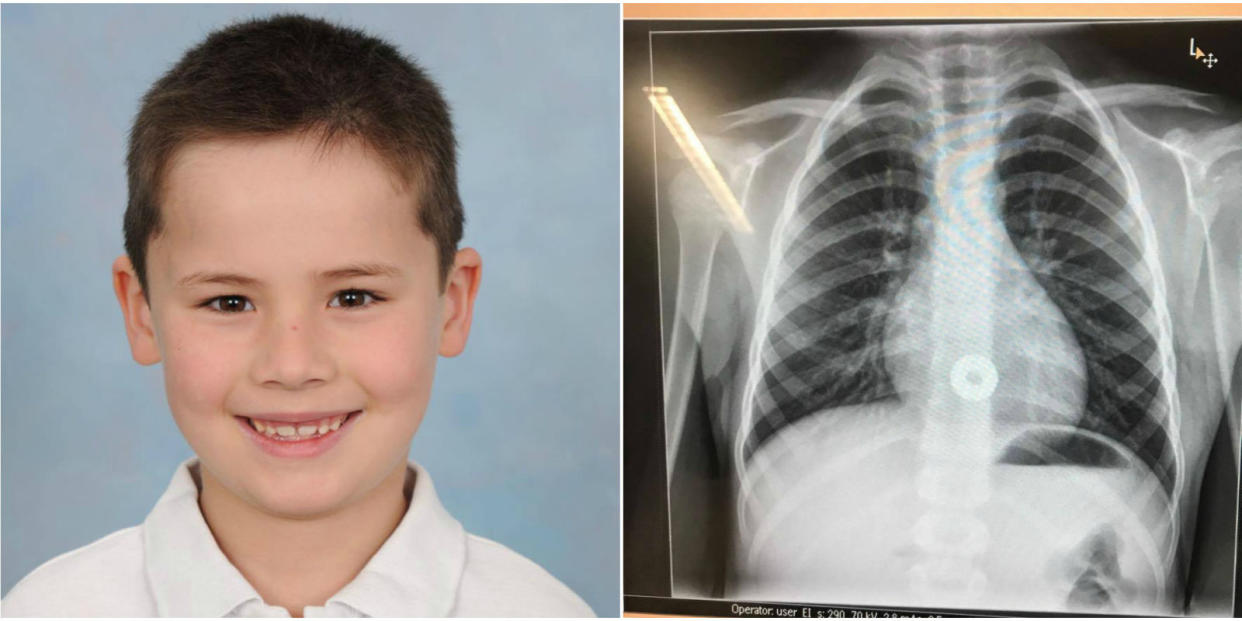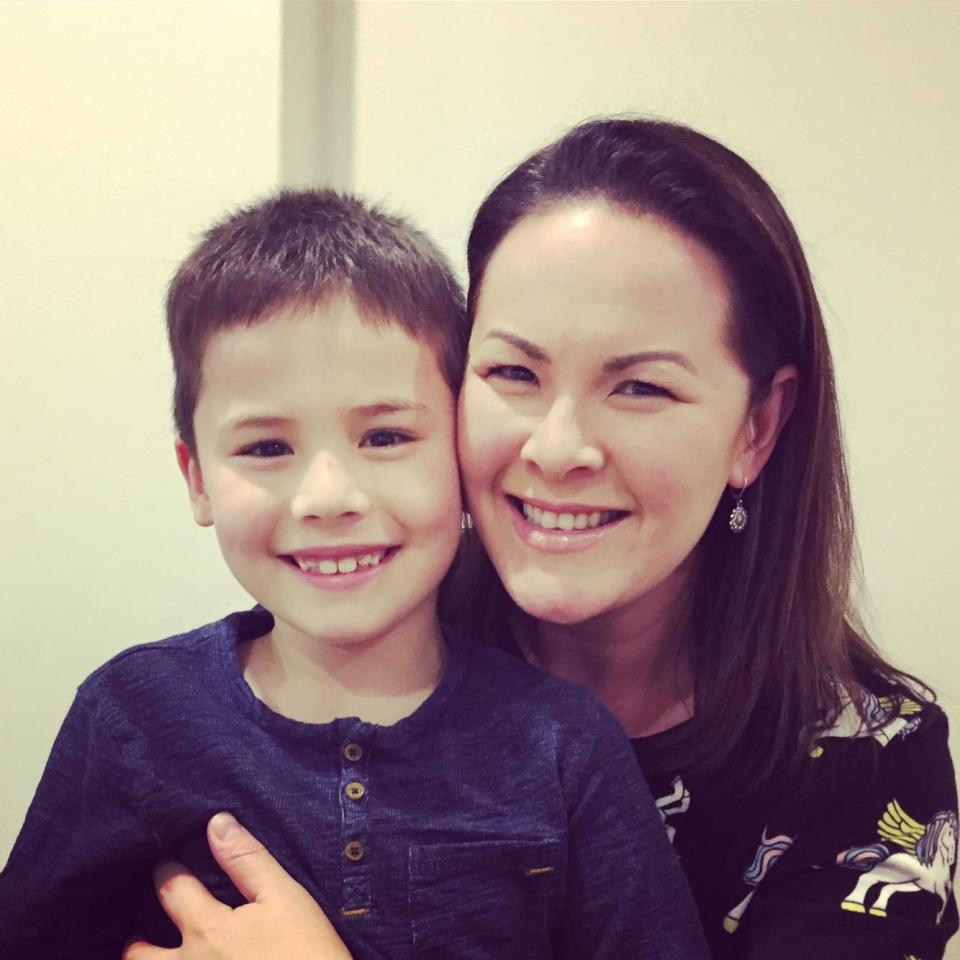Parents Beware: Another Kid Swallowed a Fidget Spinner Part

It's not the first time this summer's most popular toy has posed a safety hazard, but one mom's warning is just as scary. After a disc became dislodged from Jade Girvan's 7-year-old son's fidget spinner, he swallowed the piece and needed to be rushed to the hospital. Now Girvan says she wishes she never purchased the trendy gadget.
Girvan explained that she finally gave in after her son Angus begged for a fidget spinner for weeks and purchased one for him and one for his 5-year-old sister as a special treat for his birthday that weekend. Not even a day later, Angus was playing with his spinner, when his mom says that one of the toy's three discs flew off into his mouth.

His mom told news.com.au that she then heard "very heavy breathing" coming from her son and rushed into his room to see if he was okay.
"We ran in and said 'are you okay' and he just held up the fidget spinner and said he swallowed it - and sure enough, there was a hole where one of the discs was," she told the Australian news outlet. "I went 'oh my God' - we just couldn't believe it."
She rushed her son to the Royal North Shore Hospital, where doctors took an X-ray that showed a disc half a centimeter thick and just bigger than a quarter lodged in his stomach.

Doctors discharged him and advised Girvan to bring her son back if the disc did not pass by itself within two days.
"He came home and went to bed and when he woke up the next morning he wasn't feeling well - he said he could still feel it," Girvan told news.com.au. "It wasn't very pleasant for him at all."
His mom has since reported the incident to Kmart, where she purchased the spinner, who referred it to the Australian Competition and Consumer Commission.
Little Angus isn't the only child to have an unpleasant experience with the toy. A 10-year-old girl from Texas did get a piece of a spinner lodged in her esophagus, and a 5-year-old boy from Oregon had to undergo surgery after swallowing a part.
"They are a cheap and easy toy that appeal to both kids and adults and that gives it a very dangerous market," Girvan said.
Engineers at the Good Housekeeping Institute say that Girvan is in the right with her concerns. When tested in the Consumer Electronics and Engineering lab, they found that both branded and knock-off spinners broke into pieces that could be considered a choking hazard for children under the age of three. However, just because your child is past this age, doesn't mean they are in the clear. In fact, recent fidget spinner choking stories show the opposite.
"It's important to keep an eye on kids even if they're at an age outside that choking demographic, said Rachel Rothman, the Good Housekeeping Institute's Chief Technologist and Director of Engineering. "For kids ages 3 to 6, make sure they are being supervised if using a spinner. For older kids, it's still worth having a conversation to inform them of the potential dangers."
If your kids are playing with fidget spinners, the Good Housekeeping Institute recommends that parents take the following precautions:
1. Check for small parts.
Anything that has a small part, or could conceivably be broken down through use or misuse into small parts should be kept away from young children. While there is a standard for testing the size, a simple at home test is to see if any component could fit through a toilet paper roll.
2. Get rid of broken toys.
Beyond the potential for a choking hazard, they may also lead to unintended sharp edges that can lead to injury.
3. Read the label.
Check the recommended age rating on the toy to make sure they are appropriate for your child's age range. Be particularly diligent if you have younger kids at home who may try to play with an older sibling's toys.
4. Adult supervision is key.
Even if there is no warning on the toy being tested, nothing takes the place of a parent keeping an eye on their child.
5. Register your product.
By doing so, you'll be alerted if your toy has been recalled. Or sign up for a recall alert at recalls.gov.
6. Notify the Consumer Product Safety Commission (CPSC) with any problems.
Go to saferproducts.gov and you can report product issues online, by phone, email or postal mail. All reports are reviewed, and consumers can view your report if you give them permission to help others make more responsible choices.
Based on the number of recent injuries surrounded fidget spinners, the CPSC has announced that they are taking a closer look at these products. In the meantime, this is a good reminder to always keep an eye on what your child is playing with. The CPSC says choking is a leading cause of injury and death in young children, so keeping an eye out for toys with smaller parts can only help keep your kids safe.
GoodHousekeeping.com has reached out to Girvan for comment. She has not yet responded, but we will update this post as new information becomes available
You Might Also Like


